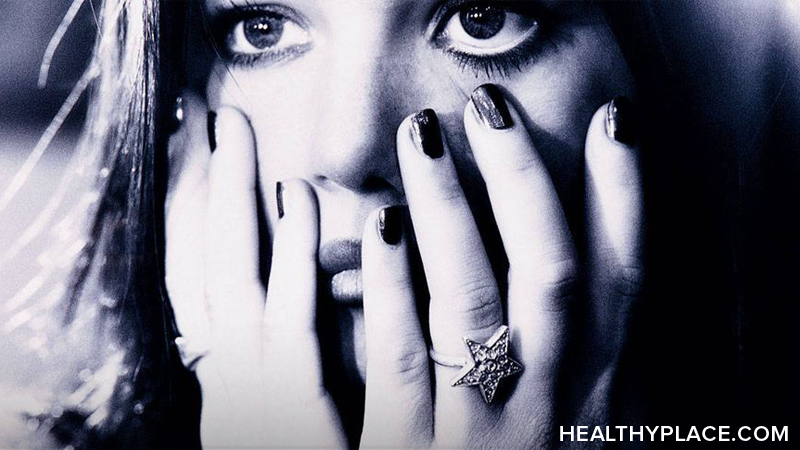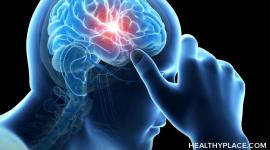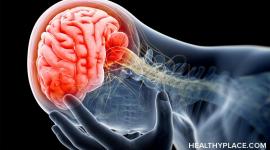Panic Disorder with Agoraphobia: Panic Disorder to the Max

Panic disorder with agoraphobia is taking unreasonable and excessive worry and fear to its maximum level. Imagine being in a situation where you are terrified you will die. That is the level of intensity experienced by people who have a panic attack.
Panic disorder with agoraphobia is when these panic attacks occur in public and as a result, the person becomes worried they will have another one in a public place and won't be able to escape the perceived embarrassment that might cause.
Panic Disorder with Agoraphobia: A Self-Fulfilling Prophecy
Unfortunately, excessive worry may actually create a panic attack and the situation becomes a self-fulfilling prophecy. If this happens, the person starts to avoid all the places where they've either had a panic attack or fear they might have a panic attack - like stadiums, crowds, bridges, trains, buses or stores. As you might guess, the list of places to avoid starts to get pretty long.
A person with panic disorder alone experiences panic attacks in relation to specific situations or objects. However, a person with panic disorder and agoraphobia experiences panic attacks in relation to a wide variety of situations. In fact, they may be so disabled they are unable to leave what they consider a "safe zone" – an area in which they feel they will not have a panic attack. This area might become so small that a person with panic disorder and agoraphobia may be unable to leave their home.
What is Agoraphobia?
Agoraphobia is a type of phobic disorder, just like social phobia or a simple phobia (like a fear of spiders). Agoraphobia more often occurs in women and usually begins in late adolescence and early adulthood. Substance abuse increases the risk of agoraphobia.
Agoraphobia is commonly thought of as a "fear of open spaces," but this isn't accurate according to the Diagnostic and Statistical Manual of Mental Disorders (DSM-IV-TR). Agoraphobia is really the fear of being alone in a public place, generally, in situations in which it would be difficult or embarrassing to escape in the event of a panic attack. Agoraphobia can include fear of:1
- Open spaces, like being on a bridge (assuming fear of heights is not involved)
- Crowded spaces, like being in a supermarket or on a bus
According to the National Comorbidity Survey, up to 6.7% of people will experience agoraphobia in their lifetime. Social phobia, another anxiety disorder, is often a precursor to agoraphobia.
Causes of Panic Disorder with Agoraphobia
Agoraphobia is experienced in 30% of people with panic disorder2 and because it can impact a person's ability to function on transportation and in public, it can make it impossible to work and lead to depression and complete disability.
Agoraphobia with panic disorder may be as a result of:
- Irrational thoughts (cognitive distortions) after repeated panic attacks
- Conditioned responses learned when attempting to avoid situations where previous panic attacks have taken place
- Abnormalities in brain chemicals like serotonin, noradrenaline or gamma-aminobutyric acid (GABA)
Treatment of Panic Disorder with Agoraphobia
Agoraphobia is notoriously difficult to treat as it requires facing multiple fears daily. In addition, to get treatment, you have to go to the therapist's office. Many with agoraphobia won't leave their house, as that's the only place they feel safe. However, with psychotherapy and medication, panic disorder and agoraphobia can be successfully treated. Normally both types of treatment are required simultaneously for successful treatment.
Medications normally include antidepressants like selective serotonin reuptake inhibitors (SSRIs), tricyclic antidepressants (TCAs) and sedatives like benzodiazepines. Very gradually increasing medication when initiating treatment and very gradually decreasing doses when ceasing medication is crucial, as side effects from getting on or off medication can resemble a the symptoms of a panic attack.3
APA Reference
Tracy, N.
(2012, January 17). Panic Disorder with Agoraphobia: Panic Disorder to the Max, HealthyPlace. Retrieved
on 2026, January 15 from https://www.healthyplace.com/anxiety-panic/panic-disorder/panic-disorder-with-agoraphobia-panic-disorder-to-the-max


